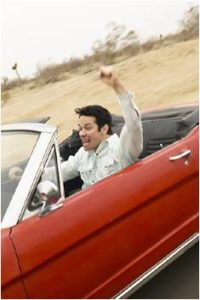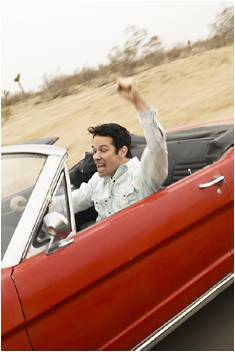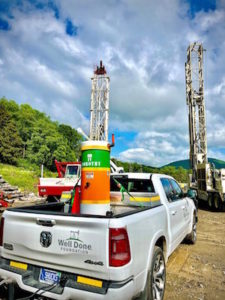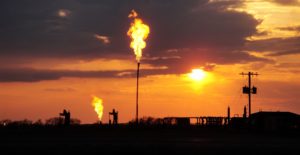As you shop around to find a fuel-efficient vehicle, you’ll notice different average mileage figures given for driving in the city and on a motorway.

You might be driving a car that is supposed to achieve 50 mpg, but if you gun the accelerator and leave the engine idling, you won’t get anywhere near such mileage in real life.
Here are a few tips to keep in mind to help you maximize your car’s fuel economy. Don’t forget that fuel efficiency leads to big money savings at the gas pump.
1. Stick to the speed limit.
It’s a surprisingly common misconception that if you can reduce the length of your trip by driving faster, you’ll burn less fuel. In reality, you burn fuel at a more rapid pace when you exceed speeds of 65mph. Wind resistance increases at higher speeds, meaning your car has to work harder to keep up the pace. The most efficient speed you can travel is between 55 – 65mph, after which efficiency will rapidly decrease. Driving at a speed of 85mph would use 40% more fuel than if you drove at 70mph. When on the motorway, try using cruise control to maintain a safe and consistent speed.
2. Reduce your car’s weight.
Another way to boost efficiency is by reducing your car’s weight and drag. Remove extra roof racks if you’re not using them, because these increase wind resistance. Try to eliminate extra weight from inside the car, as well. If you’ve been carrying around spare luggage or packages in the backseat or trunk, it’s time to clear them out. You can save 1% on fuel for every 45kg/99lbs that you remove from the vehicle.
3. Avoid letting the engine run.
In the past, cars needed some time to warm up. However, modern cars no longer need to idle before you drive them. They are ready to drive as soon as the engine is started. As we recently wrote here, letting your car idle wastes energy, so avoid any unnecessary revving or idling. Another factor to consider is that it takes up to 8km/5miles before the engine will be running at the height of its efficiency, which is why short trips use more fuel per mile or kilometre than longer distances.
4. Limit use of air conditioning.
Using your heater won’t burn too much energy, but the air conditioning is a different story. If possible, try to keep windows open at lower speeds to keep your car cool and well-ventilated. However, at speeds over 40mph, it’s better to switch on the air conditioning because the drag from the windows will cause your car to use more fuel.
5. Anticipate the road ahead.
Boosting your efficiency as a driver is all about careful, slow movements. Drive as smoothly as you can, without sudden accelerating or braking. To do this, you’ll need to keep ample space in front of you and anticipate the road ahead. It’s helpful to use GPS, sat-nav or other electronic tools to monitor roads.
By taking the time to plan your journey and drive more mindfully, you can make a world of difference in how many miles per gallon you get. No matter what type of car you drive, you can improve its mileage, use less gas, and save money at the pump by making simple changes to the way you drive.
PHOTO CREDIT – Courtesy of a driver who uses many of the tips above to achieve incredible fuel efficiency with his vehicle, even though it is not a hybrid or plug-in!
NOTE: Underwriters of articles like these allow us to bring you expert content at no cost to you. All editorial opinions expressed are our own. Thanks!

















